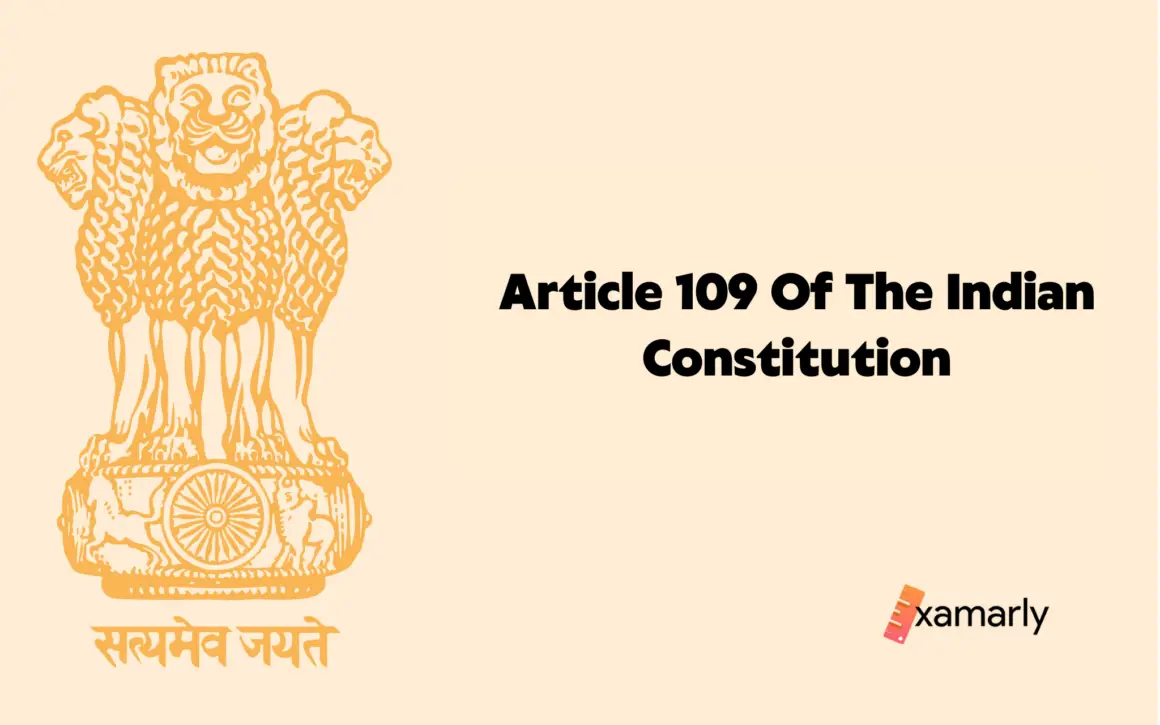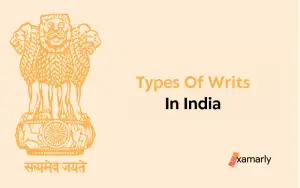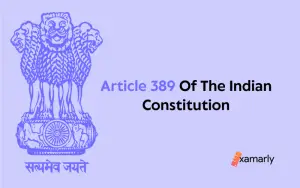Article 109 of the Indian Constitution reflects upon the proceedings and protocols related to the introduction and regulation of Money Bills in the House Of Parliament. It also reflects on the fact that Lok Sabha which is the House Of People is the Apex House also has an upper hand in the decisions related to a Money Bill.
We know that the Money Bill is segregated from the other Bills in the Houses Of Parliament and has some special procedures in terms of introduction and regulation.
In this article, we will understand in depth all the concepts related to the regulation and introduction of a Money Bill.
Before that, let us focus on what the Money Bill is?
What is a Money Bill?
Article 110 of the Indian Constitution defines a money bill. A money bill deals with financial matters like taxation and public expenditure.
Let us delve deep into Article 109 of the Indian Constitution by analyzing each clause present in this Article one by one.
Article 109 Of The Indian Constitution – In Details
Clause 1 – As it is & Explained
“109. Special procedure in respect of Money Bills
(1) A Money Bill shall not be introduced in the Council of States”
The first clause of Article 109 of the Indian Constitution says that a Money Bill shall be introduced only in the House Of People (Lok Sabha) and not in the Council of States (Rajya Sabha).
Clause 2 – As it is & Explained
“(2) After a Money Bill has been passed by the House of the People it shall be transmitted to the Council of States for its recommendations and the Council of States shall within a period of fourteen days from the date of its receipt of the Bill return the Bill to the house of the People with its recommendations and the House of the People may thereupon either accept or reject all or any of the recommendations of the Council of States”
The second clause of the Article says that once a Money Bill is passed by the Lok Sabha, it will then be transmitted to the Rajya Sabha. The Rajya Sabha will have a deadline of 14 days to put its recommended amendments to the Bill and pass it back to the Lok Sabha.
The Lok Sabha may accept or reject the recommended amendments made by the Rajya Sabha on the Money Bill.
Related Articles
- Article 107 Of The Indian Constitution
- Article 108 Of The Indian Constitution
- Article 93 Of The Indian Constitution
Clause 3 – As it is & Explained
“(3) If the House of the People accepts any of the recommendations of the Council of States, the Money Bill shall be deemed to have been passed by both Houses with the amendments recommended by the Council of States and accepted by the House of the People”
The third clause of Article 109 of the Indian Constitution says that if the Lok Sabha accepts any of the recommended amendments made by the Rajya Sabha on the Money Bill, then the Bill will be regarded as passed from both Houses with the acceptance of all the amendments by Lok Sabha.
Clause 4 – As it is & Explained
“(4) If the House of the People does not accept any of the recommendations of the Council of States, the Money Bill shall be deemed to have been passed by both Houses in the form in which it was passed by the House of the People without any of the amendments recommended by the Council of States”
Clause 4 of the Article says that even if the Lok Sabha does not accept any of the recommended amendments made by the Rajya Sabha, then also the Money Bill will be considered passed from both Houses.
This time the Money Bill will be passed in such a form that there were no recommendations made by the Rajya Sabha on the Bill.
Clause 5- As it is & Explained
“(5) If a Money Bill passed by the House of the People and transmitted to the council of States for its recommendations is not returned to the House of the People within the said period of fourteen days, it shall be deemed to have been passed by both Houses at the expiration of the said period in the form in which it was passed by the House of the People”
The fifth clause of the Indian Constitution says that if the Rajya Sabha does not returns the Bill back to the Lok Sabha within the deadline of 14 days, then after the expiration date of the deadline the Bill will be considered as passed by both Houses.
The Bill this time will pass in the same form as that when it is passed by the Lok Sabha.
Summing Up
Article 109 of the Indian Constitution makes up as an important Article because it formulated the protocols and procedure with respect to Money Bills in the Parliament. We conclude from this article that the Lok Sabha has more authority on Money Bills than Rajya Sabha.
FAQs
How many days does Rajya Sabha get to make any recommendation on the Money Bill?
14 days is the deadline for the Rajya Sabha to discuss the Money Bill and send it back to Lok Sabha.






